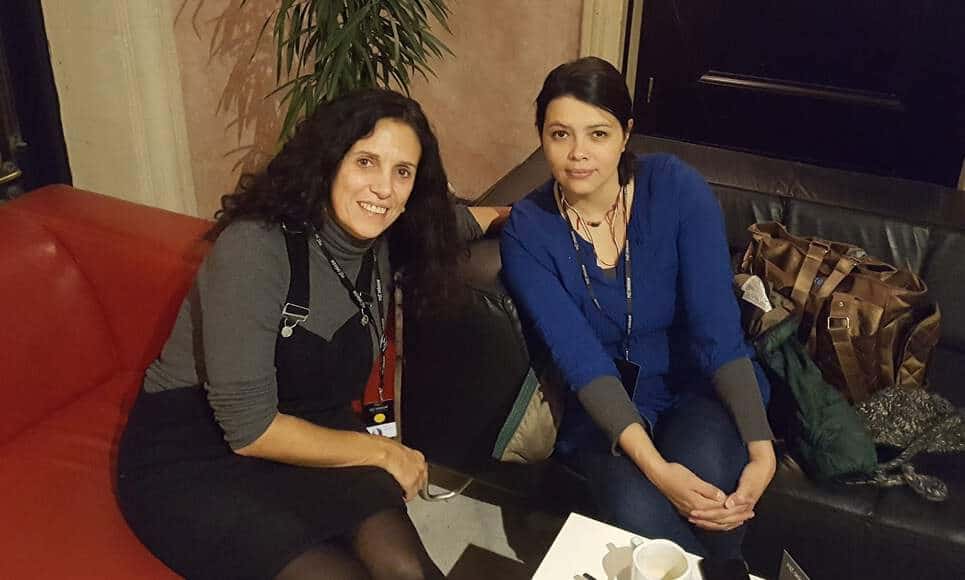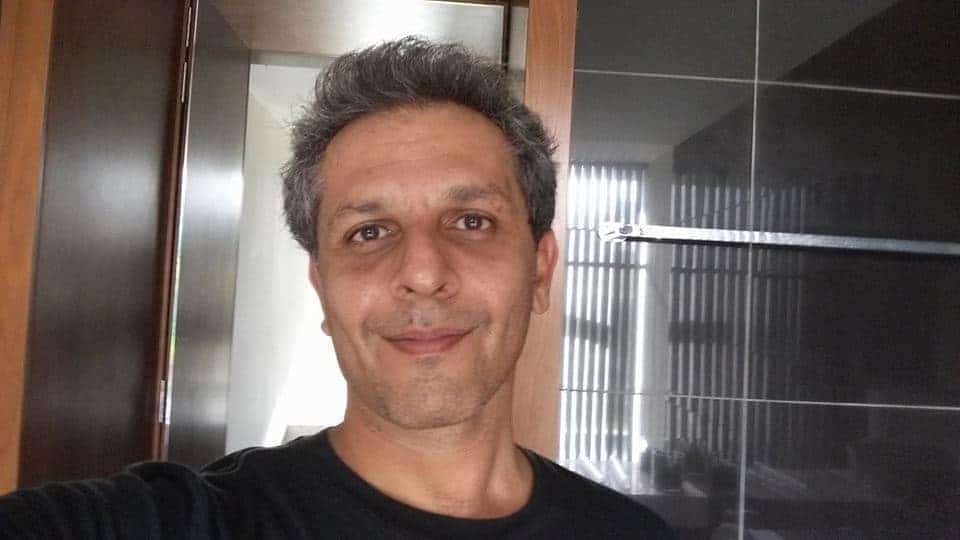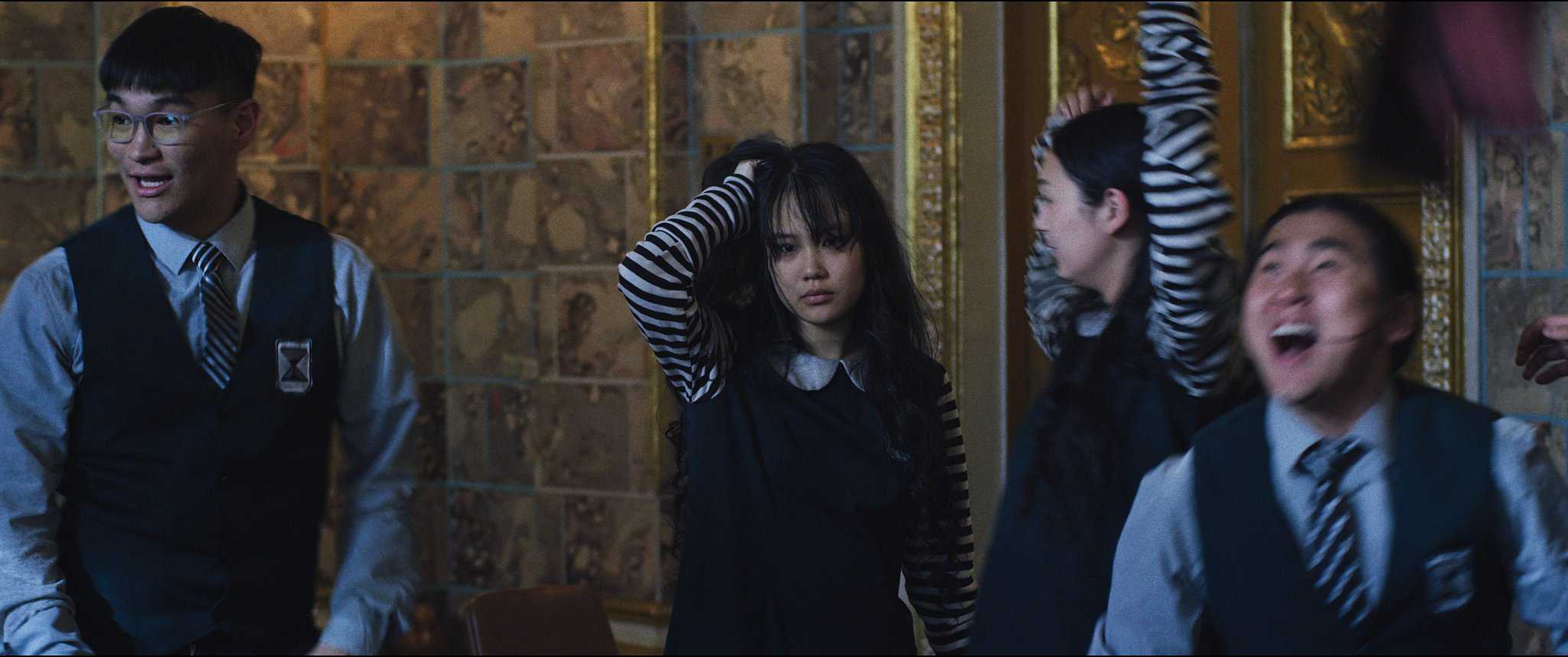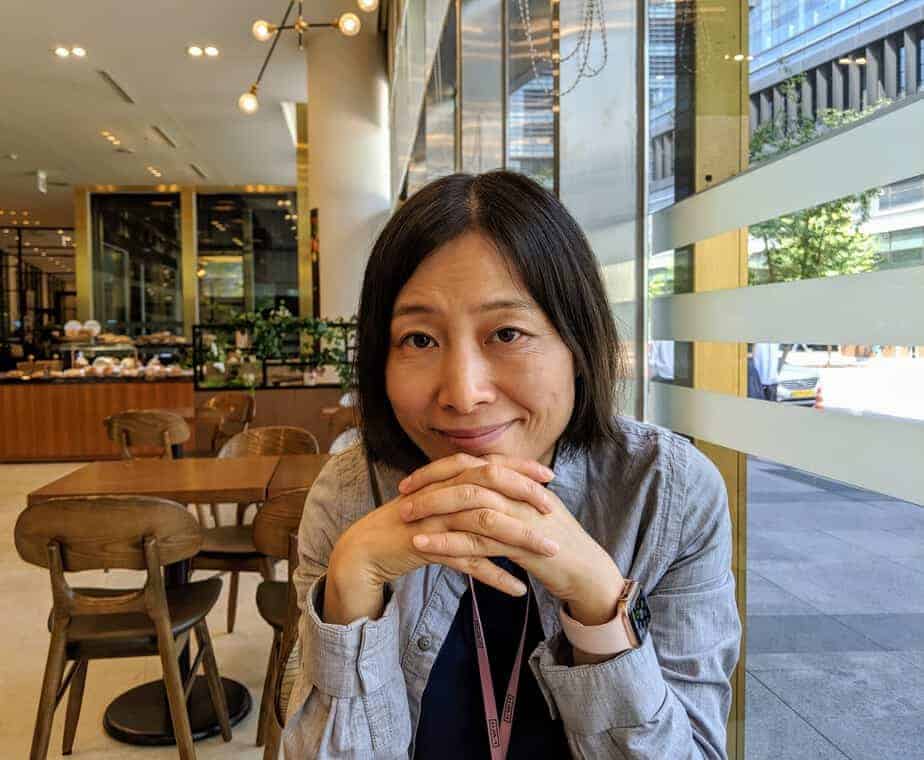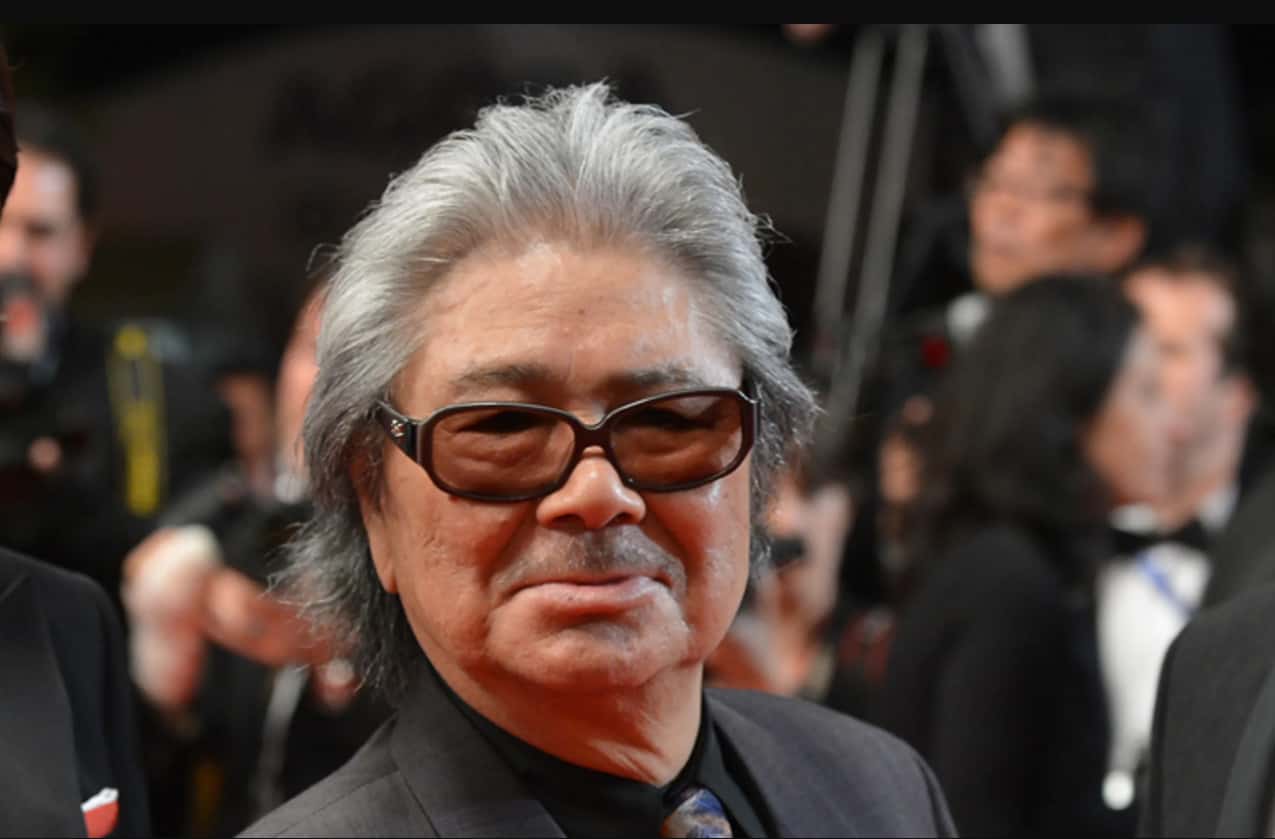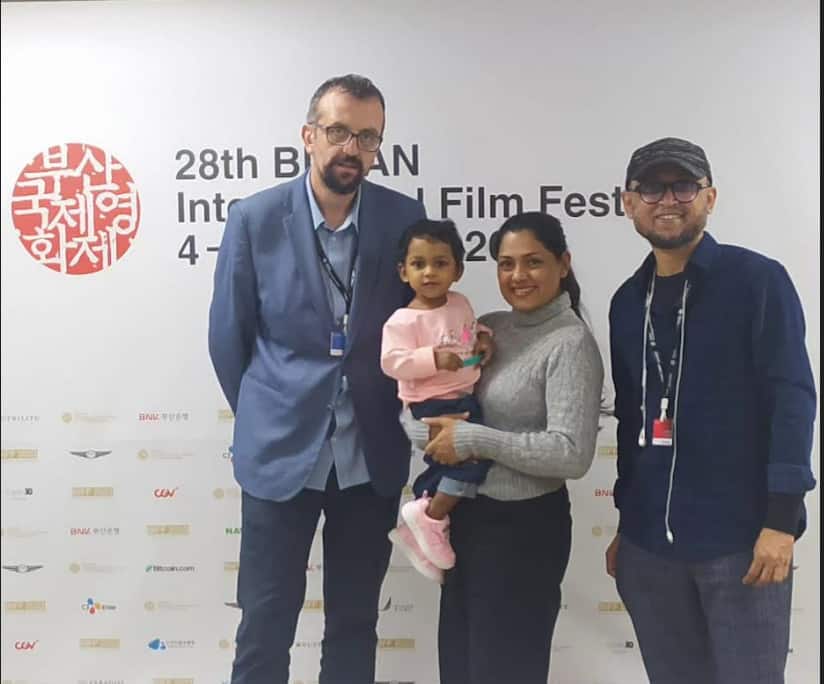Director Dechen Roder was born in Bhutan in 1980. Since 2004, she has been directing short films and documentaries, broadcast in Bhutanese public television. Her short features were shown at film festivals in Hong Kong, Brussels, Berlin, Melbourne, and Palm Springs. She is a co-founder of the first Bhutanese documentary and short film festival Beskop Tshechu. “Honeygiver Among the Dogs” (2016) is her feature debut.
On the occasion of her film, “Honeygiver Among the Dogs” screening at Five Flavours, we talk with her about a handy cam, setting an example for women in Bhutanese film industry and the hell of multitasking.
“Honeygiver Among the Dogs” screened at Five Flavours 2017
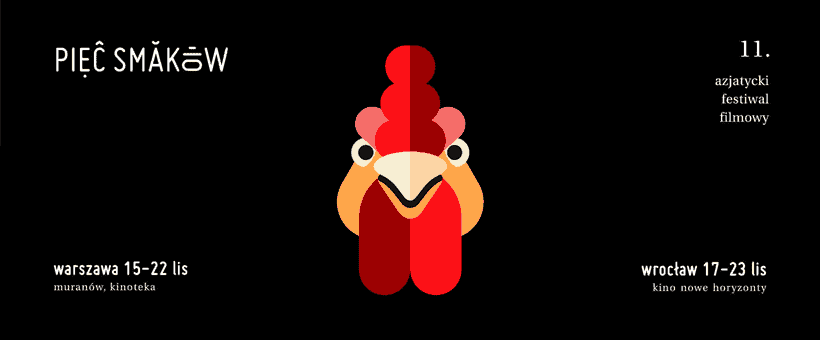
Can you tell us about your first experiences in movie making?
I started in 2004, I was 24 at the time, I was interested in movies and I had lived in New York for a bit, but I was only working in restaurants because I needed to make money to live … In New York almost everybody tries to make films and work in restaurants for money! It was a good experience but it was difficult to survive. Then four friends bought me a handy cam as a present. I was so touched, thinking back now, it was a big and important present. Back to Bhutan, there weren't many filmmakers, especially in the documentary or non-commercial field, only TV stations and the mainstream commercial movies, nothing in between. So I made my first work, a small documentary with my handy cam, filmed in my native village, about a class my aunt was taking to learn to read and write in our Dzongkha language. It was a very conventional kind of storytelling, nothing fancy or political, I also learned how to edit it, it took me a bit of time but in the end I was very happy because a few months later, after many many meetings, it was shown on TV. That was very new for me and for them too as they had never broadcasted an external product. It was such a nice feeling, it was on the National TV and they also gave me a little money, it gave me confidence even if, thinking now, it was a bit like a student project. After that one, I did few more documentaries and because nobody was doing it at the time, I started to do commission work, I got few jobs, TV productions, bigger documentaries and they were good for money while planning my first feature film. It took me more than 10 years.
You mentioned being self-thought. Is there a Film School in Bhutan or students need to go abroad? India? US?
No, there aren't film schools in Bhutan. When I was young, I didn't think of going to study abroad, mainly because there wasn't a film industry in Bhutan, therefore even if I was interested, I didn't see it as a future job opportunity. Moreover, studying abroad is very expensive, in India there is lots of competition and I didn't have the background. I didn't see it as a possibility.
And was being a woman an obstacle?
No, I don't think it ever was, Bhutan is a very equal society, not like the other counties around like India, and therefore, I didn't encounter any discrimination in my work or any discouragement. And that is why I am surprised that not many women do this job in Bhutan, because there is no discouragement or problems. I think it is more a frame of mind and a habit.
So you could be an example, maybe seeing you more women could consider working in this field.
Yes indeed! Even after “Honeygiver” I was asked to do some very boring commission work, like filming some conferences and meetings and I didn't want to take it at first but then I thought that I would have done it so that people could see that a woman was doing the job and in fact few people came to me and told me: “Oh, you are a woman!” And so I am very happy that not for my own vanity but that I am in their visual memory and in their subconscious.

And I know you are also helping young people to pursue this career with your film festival. Can you tell us about this project?
Yes, me and my husband, Pema Tschering, are co-founders of the Beskop Tshechu Festival and we based it on my experience. When I was making short movies there wasn't any platform to support and show these shorts Αs I said earlier, the only two options were TV or commercial movies and so I felt that not seeing movies and the possibilities to show them, young people wouldn't even think of making them. It also has an educational purpose for the public, the festival is free and we use public spaces, we usually book the whole center of Thimphu and set up a huge screen. We give them a platform to show their work and we try also to create a sense of prestige, with Awards, some international jury members, a proper Festival environment that is something also missing. We don't have Festivals nor a sense of community, the industry is very young and the mainstream cinema only have the yearly Awards, but no Film Festivals. We try hard but it is very difficult, we don't always get enough funds so it is not regular, the dates are a bit hit and miss. It all depends if we have time and money.
Will it happen this year?
I don't know yet, last one was in 2016, but things have become much more difficult, like to get the licenses and permissions to show the movies is a red tape nightmare.
How is being two artists in the same family?
(She laughs) Honestly it's a bit difficult as we both think our own job is more important than the other's but on the other hand is nice because we really have flexible time and we can arrange it and interchange. This is how we could both come here, especially now that there is the baby (they have a 7-month-old baby girl)
Now can you tell με where this idea of the movie “Honeygiver Among the Dogs” come from?
Well, many different inspirations that came together, but mainly the story of this female dakini. My mother is a storyteller and a writer and I was lucky that I could listen to her stories, and later I realized I was especially lucky because many girls don't have a chance to hear some of these tales, we grow up with stories about men, big Buddhist men all the time, everyone knows them, the stories, images, movies but nobody tells the stories of Buddhist women. I thought it was very sad and I wanted to know more. I started a personal journey to find more stories and make more connections and then it turned into a film. I didn't want to include only one story of one woman, like a biography, I wanted to find connections of different lives of women and my personal investigation became the detective's investigation in the film, the questions he asks and the way he thinks are the same of mine at the beginning of the process.
I thought the part of the film shot in the forest is very feminine and spiritual and it counterbalances the part in Thimphu where the men's action happens and the story get very material. Is the land-owing issue something real and going on in preset Bhutan?
People are becoming much more materialistic now. I don't want to say that in the past everything was good, but I think it is disturbing when this materialism is at the cost of the environment and human lives. We are quite lucky in Bhutan as the environment is protected and our King has just passed a law to limit the deforesting. So the story of the film is not real but inspired by many issues we are experiencing with land as in the past there weren't written contracts and now different people claim the ownership, it's not a huge problem but it is there. Actually, when I was writing the concept I wasn't sure what would have been the issue with materialism and a friend happened to tell me a similar story that her neighbor was experiencing and that was it.

What were your inspirations to create the two protagonists?
For Choden (the woman) I didn't want to have a source, I wanted her to represents all those women. In fact for Kinley (the man) I gave the actor (Jamyang Jamtsho Wangchuk) lots of films to watch to develop the character, like “Prisoners” or noir films like “L. A. Confidential” and also lots of silent movies to study the facial expressions and then all the Wong Kar-wai's movies and I told him to study the actor Tony Leung Chiu-wai, his presence and his sense of space and commanding and confusion, so I was giving him lots of references. On the contrary, when the actress (Sonam Tashi Choden) asked me what were her references I told her not to have any. I wanted her to come out with a completely new image and be indefinable which is the whole point of the character. She was very confused as it was her first time acting, but I told her I couldn't give her a reference because there was no reference.
At the beginning of the movie, when Kinley starts his investigation, the villagers describe her as a demoness “because she is an outsider”. Is this a kind of existing prejudice in the countryside?
Not really, the issue here is that they don't like her more because she is different, rather than because she is an outsider. She is different because nobody knows anything about her or were she comes from. I wanted to refer to the fact that dakini used to travel a lot and didn't have a fixed place.
Did you encounter any particular obstacle or problem in the filming and production of “Honeygiver”?
It was actually all pretty much a complete nightmare! I had to do produce the movie too and I had no idea how to do it. We don't have producers in Bhutan , we have executive producers but they produce the financing, so I couldn't hire a producer, I had to do it myself, be my own producer. It was very tiring because I was directing and editing too. I was driving people around, dropping cast and crew, I was always the last to drop people at the end of the day and the first to pick them up in the morning and make tea if there was no budget for catering. It was physically exhausting; I wish I didn't have to do the producer's job because in the end it affected the rest, my mind was full with logistic problems and I was totally inexperienced about representing the movie in international festivals outside Bhutan, I had to Google: “What does a producer do?”. I didn't realize how much it was draining me, I was directing, editing, producing and also recording and I started to get physical pain and illness and getting check-ups, I was very sick and I didn't know why. I think she came at the right time (she points the baby); it was like a sign to stop me getting ill.
Do you feel better now? Your film has been very well received in the international circuit.
Yes, now I am very happy, I have a film, I have a baby and everything seems to be OK. I have been lucky and now I feel that whatever I will do, it will be easier. Easier to get funding and to get support. I have few ideas for a new project but I have to wait a little bit for the baby to grow up. When I was having her I thought; “OK, when she is two month-old I can start to work”, but then it was four months and now she is seven and I'm thinking it could be nine, or turn into one year … I will understand when I am ready ad then I have a nice idea I would like to pursue.


